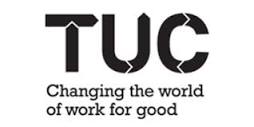PRESS RELEASE : Not enough music in music lessons (March 2012)
The press release issued by the Department for Education on 2 March 2012.
One in 5 of the schools visited were judged inadequate for music. The findings and recommendations are published in a report today.
In too many music lessons there was insufficient emphasis placed on active music making, and too much focus on talking or written exercises. The scarcity of good vocal work in secondary schools, where nearly half of those inspected were judged inadequate for singing, and the underuse of music technology across all levels were found to be significant barriers to pupils’ musical progress. For example, insufficient use was made of audio recording to assess and improve pupils’ work.
Across the primary and secondary schools visited, around twice as many girls as boys were involved in extra-curricular activities. In secondary schools, only 6% of students with disabilities or special educational needs were involved in additional tuition, compared to 14% of students without these needs.
Nearly all the schools recognised the importance of promoting a diverse range of musical styles, but far fewer had a clear understanding about how students should make good musical progress. The report, ‘Music in schools: wider still, and wider’, is complemented by six new films (link below) exemplifying good practice in a wide range of settings, designed to help all schools.
Launching the report, Her Majesty’s Chief Inspector, Sir Michael Wilshaw, said:
Inspectors looking at music teaching in nearly 200 schools saw quality ranging from outstandingly good to extremely poor. Too often, inspectors simply did not see enough music in music lessons.
Too much use was made of non-musical activities such as writing without any reference to musical sound. Too much time was spent talking about tasks without teachers actually demonstrating what was required musically, or allowing the pupils to get on with their music making. Assessment was often inaccurate, over-complex or unmusical, particularly in secondary schools. All this limited time for practical music, detracting from pupils’ musical improvement and enjoyment.
School leaders need to monitor and challenge robustly the quality of music teaching and curriculum planning. I hope that schools and the new music hubs will use our recommendations to improve the quality of their music education.
The report recommends that schools give sufficient, regular time for developing aural awareness and musical understanding, and ensure that opportunities for pupils’ practical, creative application and response to music are given priority.
It recommends that schools do more to ensure the sustained participation and musical achievement of specific groups of pupils; particularly boys; pupils with special educational needs; pupils known to be in receipt of free school meals; and children who are looked after.
Best practice case studies of music teaching highlighted in the report include a range of lessons from every type of school in different styles (see notes below). Poor teaching also highlighted shows entire lessons, for example, where teachers did not play or sing a single note. In one lesson students sat passively while the teacher spent almost 20 minutes explaining complicated assessment objectives. One Year 9 class completed the copying of information about the lives of Eric Clapton and Johnny Cash but did not engage in musical activity.
The six films include examples which highlight the impact external providers can have on achievement and participation. These films cover a diverse range of schools, including a primary school where 98% of pupils are from minority ethnic groups, a high-attaining boys’ secondary school, and a special school for children with profound and multiple learning difficulties.



